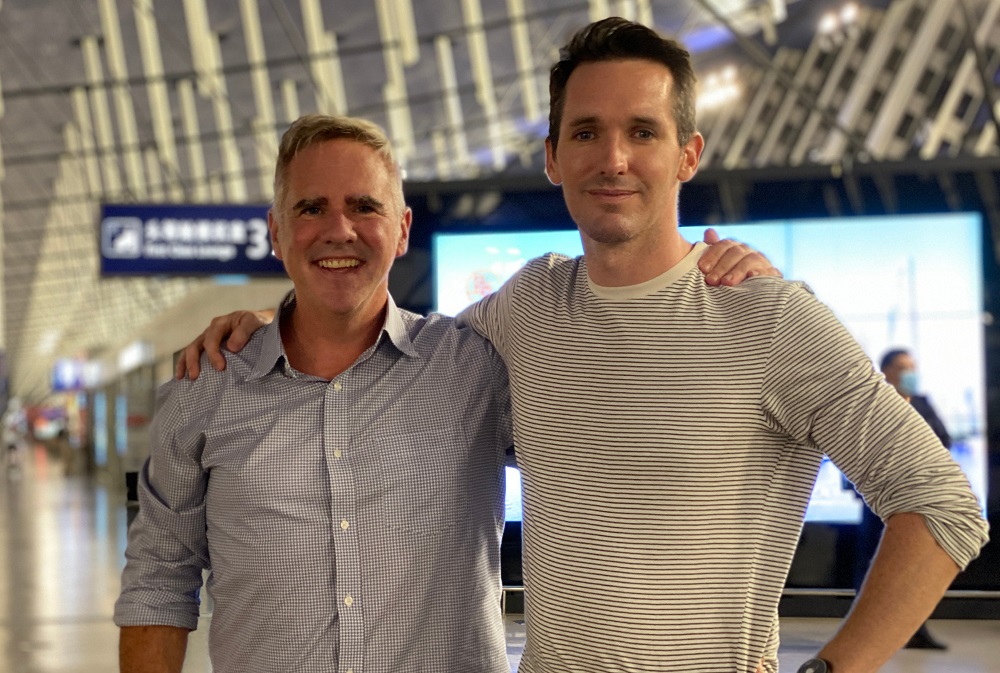
The prospect that the Australian Financial Review’s Mike Smith and the ABC’s Bill Birtles were going to spend months in China’s notorious black jails, being interrogated and having no access to lawyers, drove them to seek Australian diplomatic protection and a negotiated exit from China. As Smith put it, ‘I feared being disappeared.’ That was a very real prospect given the arrest of another Australian journalist, Cheng Lei, on 14 August, apparently for ‘endangering national security’.
We’re wrong if we think these incidents are primarily about the Australia–China relationship, although reactions from various commentators have largely taken the approach of centring things on ‘the relationship’ and it ‘hitting rock bottom’, with figures like former foreign minister Bob Carr blaming the deterioration on the lack of nuance in diplomatic messaging by Australia. It’s partly about the bilateral relationship, but it’s more about the direction in which Xi Jinping is taking China domestically and internationally—and the collisions this is causing with other nations and their citizens.
If it’s true that Australian government officials searched the homes of Xinhua journalists in June, no doubt Beijing will tell us this explains its treatment of Birtles and Smith. That’s a false equivalence, though: any Xinhua staff were at zero risk of detention in a black site in Australia where they would be interrogated daily for months without access to a lawyer or consular support. But that was a likely prospect for Birtles and Smith. That stark difference was captured in Birtles’s simple words on landing in Australia: ‘It’s a relief to be back in a country with a genuine rule of law.’
Xi is closing China to external voices. The Great Firewall that stops the broad flow of information into and out of China is not new, but the level of intimidation of foreign journalists and the restrictions on their travel and access to officials are greater than before. Similar, tighter restrictions are in place for foreign embassy officials.
China is also intimidating and expelling foreigners whose governments act against Beijing’s interests—14 journalists (including two Australians) from the New York Times, Washington Post and Wall Street Journal were expelled earlier this year. Two Canadians have been in detention in China now for some 20 months and both were charged in July with the improbable offence of ‘spying on national secrets’.
Xi is simultaneously intimidating and arresting his own people because he fears dissenting voices. This year, at least five Chinese activists and citizen journalists have been forcibly disappeared ‘for reporting independently on the pandemic’, joining some 48 Chinese journalists arrested by the regime in 2019.
Xi has also just begun an internal purge of the very people who knocked on the doors of Birtles and Smith—his internal security apparatus in the form of the Ministry of Public Security and the People’s Armed Police. His reason is that ‘two-faced people’ (those who pretend to obey but secretly resist) and those who are ‘straddling the fence without showing the flag’ need to be ‘thoroughly removed’. Even China’s internal security agencies and staff are at risk of detention, arrest and jail if they do anything other than implement Xi’s will.
So, there’s a pattern here about the tighter, more ruthless control that the Chinese Communist Party under Xi is exercising over anyone who lives in its jurisdiction—citizen or foreigner—particularly those who report on the regime or who say anything that’s not supportive of it. All are facing greater risk of detention and arrest on broad, opaque grounds. Australia and Australians are part of this pattern, and likely higher priority targets because of our successful influencing of international debates on issues like 5G, foreign interference and an inquiry into the Covid-19 pandemic that are important to the government in Beijing.
What do we do from here?
First, we must stop pretending it’s primarily about how our government is ‘managing the relationship’ and how much nuance and sophistication we can bring to sneakily marketing decisions that we must make in our national interests.
Our policy and action from here must be to work in partnership with other governments and societies that are also profoundly challenged by the direction China is taking and are facing the same risks. As a start, that’s a broad set of partners from Tokyo to Delhi and Washington, and from Brussels to Taipei, Paris and Berlin. We’ve also got to consider whether continuing to give Chinese state media free access to our own societies so that they can spread propaganda makes sense given China is closing itself to our own reporters.
Even more immediately, every business and organisation with Australian employees living and working in China must reassess their need to do so in light of the high and growing risk to their personal safety. Beyond the immediate safety risk, fundamental business strategies about access to the Chinese market must be reassessed, because the assumptions they were based on just a year ago have now fundamentally changed.
We have to live with the China we see under Xi Jinping, not the China we wanted as recently as 2014 when Prime Minister Tony Abbott and Xi shook hands over a free trade agreement. The only good news now is that Australia is not alone.

